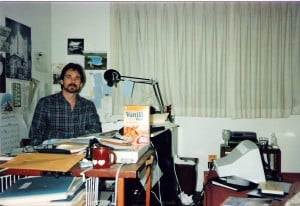
Thursday, 12:15pm
Reno, NV
“It’s too hard. You’ll never figure it out.” (What the first copywriter I ever met told me about writing ads.)
Howdy…
I’m going to tell you about two promises here.
The stories behind them may help you chart out the rest of your life… as they did mine.
Harken:
Promise #1:
The above quote (“It’s too hard. You’ll never figure it out.”) are the exact words that a professional copywriter said to me when I innocently asked for advice.
They are burned into my cerebral cortex, because it was one of the first times I had ever nurtured a small ember of actual hope about my future in business…
… and she crushed it like a bug.
All I’d wanted from her was a smidgen of advice. Maybe point me in the right direction. Or offer a small word of encouragement.
I was lost at the time. Trapped in the drudgery of a dead-end J.O.B. that sucked big-time.
And I was genuinely clueless about the process of writing anything for business. I’d never met a real copywriter before, and was very interested in finding out more.
I didn’t even know what the word “mentor” meant at the time… but I suppose I would have squirmed with joy if she had said, instead, something like “Let me help you learn how to do this.”
Still, she did me a HUGE favor by being such a miserable, hateful bitch.
As I stood at her desk, burning with shame for having asked for something and been so brutally refused…
… I promised myself that I would prove her wrong.
And I used that promise as motivation whenever I needed some extra oomph in the next year or so, as I figured out — on my own, without help from anyone — how to write killer sales messages.
So I owe her one. She did me a proper by igniting my until-then-dormant ability to Do It Myself. Literally with a vengeance.
I launched my solo career as a freelance writer entirely on my own. I took the Do It Yourself ethic and ran with it…Read more…

Sunday, 7:57pm
Reno, NV
“It’s alive!” (Baron Von Frankenstein, kickstarting the Monster)
Howdy…
We’ve just fired up the Simple Writing System blog (www.simplewritingsystem.com/blog)…
… which means a stunning (and unprecedented) pile of free tools, tactics, advice and insight can be yours…
… just for the grabbing.
This is an all-out assault on reason and logic. We’re just GIVING AWAY stuff that — not too long ago — would have cost you a pretty penny just to get a quick glimpse of.
We’ve created a beast here, and it’s name is FREE.
Here’s just a small taste of what’s piling up over there (that you’re missing out on if you haven’t signed in):
- A free swipe file of “home run” ads I’ve written (which few folks outside the target markets have ever seen)… can be in your tool kit tonight. This swipe file, alone, is causing hearts to skip a beat among marketers and freelance writers who love to rip juicy headlines and sales angles from proven ads. (Removes any guesswork on who/what to rip.)
- A short (but frightenly powerful) series of special reports channeling the best “how to make the sale” secrets I’ve ever used. (I used to keep this stuff classified, only bringing it out during high-paid consultations… and here we are giving it away.)
- The actual video (torn directly from the masters hidden in Frank’s inner sanctum) of my “How to persuade, influence and sell the shit out of anything… using the simplest stories you can create” presentation at Mass Control.
What? You didn’t see that presentation?
It’s marketing theater at its finest… Read more…

Monday, 9:21pm
Reno, NV
“Stop sniveling…” (Pretenders, “Tatooed Love Boys”)
Howdy…
Quick note here for those in need.
I’ve been almost completely retired from freelancing for some time now. I still indulge a few long-time clients…
… but I haven’t taken on a new gig in over a year.
I’m devoting my time to teaching, and writing stuff for myself.
This makes me happy.
But it bums out business owners and entrepreneurs in a major way. Because, often, someone will realize they need copy written…
… and they know, deep down, that I’m the guy who needs to write it to squeeze out max results…
… and… here’s the sad part… they cannot bribe, cajole, threaten or offer me enough money to come out of this semi-retirement to do the gig.
Man, that’s frustrating.
Here’s the good news, though: I can now offer you… the next best thing.
If you need a writer who meets my strict, Operation MoneySuck, no-BS-allowed requirements for professionalism and quality…
… I now have a small “stable” full of them.
And we’ve just released a simple program that gives you immediate access.Read more…
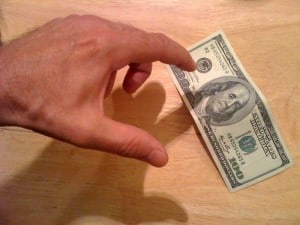
Sunday, 7:36pm
Reno, NV
“A thief believes everybody steals.” (E.W. Howe)
Howdy…
For those of you bugging me about the next Quiz…
… it’s coming, it’s coming.
Soon.
Tonight, though, I’ve gotta get something off my chest.
And so, a Rant. By little Johnny Carlton:
Ahem.
There seems to be a parasite bug infecting the brains of many marketers out there.
Let’s call this bug… “Theft“.
It’s not going away anytime soon.
In fact, the very word has been mutating for a long time now… so that what would have easily been labeled “stealing” in the bad-old pre-Web days…Read more…
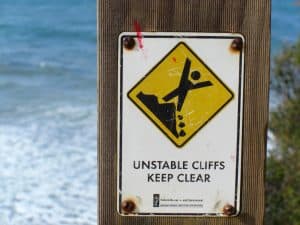
Sunday, 5:45pm
Reno, NV
“There is no problem in the world that cannot be solved with a good sales letter.” (Gary Halbert)
Howdy…
Increasingly, I am teaching less about the technicalities of copywriting, and more about the subtle (and much ignored) art of salesmanship.
And this makes sense, given the nature of the Web. Copywriting is mostly a technical skill, something you can learn to do without actually understanding what it is, exactly, that you’re doing.
Sort of like learning to play songs on a guitar without having a clue how each chord relates to music theory — you just put your fingers like so on the fretboard, and strum.
One of the first things I did in the “Kick Ass Copywriting Secrets” course was to lay out a blueprint for a basic ad. It’s almost “paint by numbers” — write something about you here, something about the product here, list some benefits here, etc.
I also laid out a way to capture a good spoken pitch, and transcribe it into a working ad.
Your fundamental, nothin’ fancy, stripped-down pitch.
The very best copywriters are artists, and understand every nuance of writing.
But for most projects, you don’t need to be a top copywriter — you just need to get the job done of presenting what you have, showing why it’s something your reader wants, and offering an easy way to get it.
As my pal Dan Kennedy likes to say:
Good enough is good enough.
For many of the entrepreneurs and small biz owners I deal with, creating an ad that is “good enough” to get a basic sales job done is all they need to get over the hump of moving into profitable territory.
And with the Web increasingly offering so much free info, you really can get most of the way “there” without paying a cent for anything.
However…
… and it’s a BIG “however”…
… you will never get above the level of mediocre sales until you go deeper with your understanding of both copywriting AND salesmanship. (Just like the guitarist who never bothers to learn music theory will forever be locked into playing only the most simple tunes, and will get lost easily when playing with other musicians. It’s the difference between “Kumbaya” and “Take Five”.)
Did you get your copy of “11 Really Stupid Blunders You’re Making With Your Biz & Career Right Now“? If not, maybe I should add Blunder # 12. Because not having this insanely valuable resource is a big mistake. Luckily you can remedy it right over here.
This is why I wrote extensively about salesmanship in the “Kick Ass” course…
… and why I hid so many other advanced lessons on salesmanship in there, too.
True success in both business and life comes down to learning the psychology and real-world application of advanced salesmanship, not just the technical details of slamming out pitches or memorizing a few persuasion tricks.
Top copywriters are master sales pros, first.
The “form” of writing copy follows the “function” of knowing how to sell.
That’s why my course — and my seminars, and my coaching clubs, and everything else I do — remains so fundamentally different than what other people teach.
Because what most people need is a good, stiff shot of masterful salesmanship. Not more technical skill at copywriting, not more graphics knowledge, and not more of anything else.
Every once in a while, I come across a “natural” salesman. They are rare. And they intuitively understand what I’m trying to teach about using copy to channel killer selling chops.
But for most folks, trying to convince someone to buy remains a big damn mystery. This is particularly frustrating when you get your basic copywriting chops down — so your ad reads well, and covers all the basics — and yet you don’t convert as many sales as you’d hoped for.
So here is the mystery, solved:
It is actually EASY to get a prospect to say “Hey, that looks like a pretty nice product”, and even agree with you that he should probably buy it.
However, it is much more difficult to move to the next level… and get that same prospect to actually pull out his wallet and give you money.
Ready to take your marketing skills to the next level? Then rush right now to consume all the resources right over here.
This is where world-class salesmanship comes in. It’s not rocket science… but until you allow your stubborn little brain to digest the lessons, it will remain a mystery.
Even bad copywriters can coax a prospect to climb up and sit on the fence.
But it takes a deep knowledge of persuasion to knock him OFF that fence, and into your yard as a customer.
I used to have to hide the fact I was teaching so much classic salesmanship… because to many people, the whole concept seems fraught with scary implications of “mind control” and sleazy persuasion tricks.
Just get over it.
Everyone sells.
Almost every single human interaction involves some level of salesmanship — kids try to sell unrestricted access to the cookie jar to Mom… teens try to sell themselves as good dating material… every essay you ever wrote was a sales job for a good grade… politicians sell themselves for your vote… and every friend you have had to be “sold” on liking you, first.
People who get good at selling live better lives. Most people suck at selling, because they never pay attention to the process.
You can get through life without understanding salesmanship. But that’s all you’ll do — “get through” it.
The magic doesn’t happen until you start learning the tough lessons.
If you’re in business, and you ignore salesmanship, you’re toast. You can create a fabulous product, or present a fabulous service… and you can even get lots of prospects to eagerly tell you how great your product or service is, and how you should get filthy rich because it’s so great.
But that’s just piling prospects up on the fence, where they will sit forever if you don’t learn how to knock ’em off that fence.
Success is not about getting good PR or lots of pats on the back.
It’s about closing the deal.
Almost everything I write has a lesson in salesmanship hidden in it. It’s a little like teaching a kid about economics by giving him a dollar toward something he wants that costs two dollars — he’s got options and choices to make, and will have to learn to handle frustration and manage his dreams. He may not realize he’s learning basic capitalism, but he is.
And he learns absolutely nothing by you giving him the two bucks right off the bat.
And don’t get offended by the “child psychology” reference here. I had to learn most of my own lessons the hard way, and my mentors used the most cruel and insultingly-basic teaching methods possible.
Remember the car-washing exercises in “Karate Kid”?
Learning is painful. We’re all basically lazy beasts, resistant to new stuff. And the deep arts of classic salesmanship often run against the grain of “common sense”, or seem to come from left field.
But then, everything worth having takes some effort.
Every single lesson you learn nudges you a little further ahead than the other guy.
The big lesson here: Most mainstream advertising, at best, gets people up on the fence.
Just knowing that massive success requires learning how to knock them OFF that fence, puts you in a position to obliterate your competition.
If you lust after an extraordinary life, you need to master the tools of getting what you want.
And it’s all about salesmanship.
Stay frosty…
John Carlton

Friday, 2:33pm
Reno, NV
“The difference between the right word and the almost right word is the difference between lightning and a lightning bug.” (Mark Twain)
Howdy…
There are two things that distinguish top copywriters from the rest of the hoi palloi —
1. A deep, reverential knowledge of street-wise salesmanship… and…
2. A love affair with the English language.
I talk endlessly (endlessly!) about the salesmanship stuff, because that’s the thing most rookies lack. And I get a huge thrill when it finally sinks in, and one of my students rips out a truly killer ad that gets even my jaded greed glands quivering.
However, force-feeding a love of language into someone is a much harder gig. At least here in the States. My burgeoning British and Irish subscribers — only recently hip to hard-hitting, direct response style advertising — seem to have an advantage here.
Europeans look at language differently than Yanks, probably because every fifty miles or so everyone is speaking a completely foreign tongue.
Language is identity. Across the pond, it matters how you form your vocal outbursts, and large vocabularies impress.
Back here on the farm, most local dialects of English have degenerated over the generations. Americans have pathetically tiny vocabularies (though most understand more words than they routinely use when speaking).
Language gets a bum rap here.
Which is great, if you’re a serious writer.
Because words carry power… and learning how to use words to convey ideas makes you a powerful individual.
First, the Thesaurus.
Then, the world!
Actually, I’m only half-kidding with that. I just had an Insider ask me for a better way to find better words to use.
And here is what I told him: Write out your headline and copy without paying any attention to how weak your word choices may be. Just get the pitch laid out, so you have an actual sales message.
Then, the fun begins.
Top writers have a Thesaurus in their head... but only after years of actually using a physical one. We've just memorized a bunch of different word choices, through the act of beefing up our writing over and over again.
Rookies need to get an excellent Thesaurus -- an actual book, not Gates's lousy Word version -- and start the process of dog-earing the pages.
(You want a real book, because using computer versions takes away both the tactile experience of searching for words... and eliminates the "happy accidents" of coming across a completely different word in your search, which you may use now or store for later in your head.)
I call it "Creating Power Word Charts".
Most rookies choose common verbs as they write. That's fine. During editing, though, whip out the Thesaurus and see what other choices are available for that dull, over-worked word.
Write them down on a piece of paper.
Then, look up each of those words, and see what other connotations exist. And write some of the best of those words down.
What you will have is a page full of choices, all connected like a geneology chart back to the initial word.
For example, let's say you used the word "run" in your copy. On page 693 of my trusty, beat-to-shit Webster's Collegiate Thesaurus, the synonyms for "run" take half a column.
Let's see... dash, scamper, scoot, scurry, sprint... and a suggestion to check out scuttle. Related words listed: race, bustle, hurry, rush, speed, scorch.
Lots more: Trot, chase, herd. Idiom suggestions (great for seeing how to see the concept of "to run" might be changed): Hot foot it, make a break, run for it, take flight, take to your heels.
Just a sampling, kids.
Now, for the fun of it... because as we all know, writers have soooo much time on our hands... let's go check out "bustle" on page 112: It's an old word, not often used today. But the synonyms open up some bitchin' new possibilities: Whirl, whisk, flurry, fuss, commotion.
I like commotion. Also fuss.
So go check out those words, too.
All this work...
... just to find ONE "right" word?
You bet. It may seem like a hassle, but it's just detective research on the "language vehicle" that will carry your pitch.
The "right" word in your headline can transform the level of interest you create in your reader.
However, don't make the rookie mistake of going overboard with this. Most of the "vanilla" verbs and other words you use are just fine in your copy. You're not trying to challenge the reader, by leveling odd and trippy word choices at him with every verb.
No way. It's the critical verbs and phrases that you need to tend to -- the parts of your pitch that suck your reader in, and hold him tight while you shovel your sales message into his amydala.
Probably, you don't need to change the word "run" in your copy.
Still, I like the idea of saying "So I bustled over to the counter to place my order before the crowd realized what was happening."
It adds flavor to the "voice" in your copy. I mean... what kind of guy would use a word like bustle? In the right sense, it actually conveys confidence and a little self-depricating humor... always a good trait in a salesman.
The English language is the most adaptable and useful language in the world. It's just that we don't make full use of it... which is a shame for the communicative powers of your average Joe, but a criminal act for a writer.
Words are easy to fall in love with. They have the power to seduce, entrance and slay.
Get hip.
And stay frosty,
John Carlton
P.S. Happy accident on page 113, while looking up "bustle": the word "buttinsky" -- to butt in, a kibbitzer, meddler or pragmatist. (Pragmatist?)
Also the word "butcher". I'm gonna use that one tonight, in a piece.
P.P.S. Were you thrown by the word "Thesaurus"? Look it up in your dictionary first.
Then high tail it over to the local book store and BUY ONE.
Do it.
Fall in love.
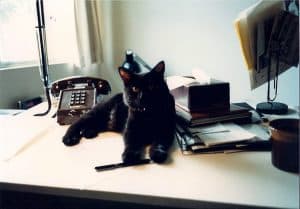
Tuesday, 9:20pm
Reno, NV
“Yep, nothin’ gets by me, cuz I’m a real fart smeller… uh, I mean smart feller.” (Cousin Donald)
Howdy…
It took me an awful long time to figure out that — to get anywhere in life — I would have to buckle down and actually get good at something.
That was a painful realization. I was thirty-two at the time, no longer young, no longer having fun doing the things that had pleased me so thoroughly just a year or so earlier.
I was done with having potential.
Screw potential.
Potential can murder your life.
All through my formative years, I was given special attention because I could draw well (I had weekly cartoon stips in both my high school and college newspapers) (even won a Quill & Scroll award)… had some musical ability (my ragged bands played for friends’ parties and at school dances)… and evidenced a little precociousness with my fiction writing.
Relax. I sucked at fiction. I wrote complete stories, was all. On my own time. This amazed teachers, but it wasn’t anything all that great. Any early signs of authorship had absolutely no correlation to copywriting. In fact, it probably set me back a couple of years.
As I’ve often said, it’s easier to teach a near-illiterate salesman to write good copy, than it is to teach salesmanship to someone with a Ph.D in English literature.
But back then, I was just good enough at several creative skills to suffer the curse of potential.
You know what potential does? It gets you credit for not actually doing anything difficult. You get used to the easy accolades… and never develop good work habits, cuz it’s no big deal for you.
During my days hanging with the “D” list Hollywood crowd, I saw the ravages of potential up close and personal. Most of the folks who’d ever been praised for a small acting gig, or had a bad TV screenplay optioned, or had scored a “meeting with John Candy’s people”… coasted on that cloud for as long as possible.
For many, their brush with success became a standing joke. We’d make bets on how long they’d wait before bringing it up to someone new. (Average time: About three minutes.)
If I was in charge of the world, I’d take every kid with potential aside… and clap them all into a boot camp, where we’d wipe that smirk off their face. And make ’em earn some real kudos.
It’s the only way to save most of them.
The most vivid example of potential versus reality I ever saw was down in Miami Beach, after it’d become a hotbed of the fashion world. Every day, several buses would arrive, crammed with young women who were the best-looking creatures who’d ever graced the small town they’d just come from.
And it took about an hour for them to realize that, as god-like as they were treated back home, here in the center of the model universe, they weren’t even on the map.
It isn’t fair.
But it’s the way it is.
So the person with a little “natural” talent at something may have a tiny advantage over the raw rookie who never heard the term “potential” tossed their way.
But that tiny advantage is irrelevant… unless it gets honed into a big advantage.
And guess what? It takes just about the same amount of hard work to hone a little talent, as it does to go from zero to hero.
Never let your perceived lack of natural ability stop you from trying something.
I’m thinking about this, after seeing Bela Fleck, Stanley Clarke and Jean Luc Ponte at the Hawkins outdoor amphitheater tonight. Stunning expertise there — on violin, gut bass, and jazz banjo.
They were dressed casually, they didn’t require any formal introductions, they joked and were at ease with each other and the crowd while they played.
And it was exquisite.
These guys are experts. And if you listen closely, you can catch pieces of Bach, Mahavishnu Orchestra, Coltrane and Weather Report licks thrown in, as teasing references.
Nice stuff. I’ve been following these musicians, separately, for thirty years. They were damn good back then. They are transcendental now.
Earlier today, I hung out in the kitchen while a new repairman took apart the built-in microwave, found hidden ice blocking the fan in the freezer, and showed me the right Allen wrench to use on the locked-up garbage disposal.
I thoroughly enjoyed watching him work. In another life, I could have happily been an odd-jobs artist… going deep into the mechanical flotsam of our lives.
He had a complaint — he’d hired, and fired, almost twenty different guys in the past year, trying to find someone who could handle some of the repair work for his thriving business.
The problem was best illustrated by the last guy — who wasted forty-five minutes trying to remove a plastic cover inside a broken dishwasher door… and finally brought the entire door back to the shop. He insisted it was permanently welded shut. The boss took it apart in twenty seconds.
“The thing is,” he told me, “that guy should have been humiliated. But he wasn’t. These rookie repairmen all want me to teach them the specifics of doing each job… but it ain’t like that.”
“It’s the process they need to learn,” I said.
“That’s right. Not the details of just that one job. They need to fall in love with figuring this stuff out.”
“It’s the same with advertising,” I said. “Great ads are the result of great sales detective work. And few want to put in the sweat.”
“Damn straight,” he said. And refused payment for fixing the fridge. Said it was his pleasure, because he enjoyed talking to me as he worked.
So… I’ve been thinking about expertise. What it is, what it takes to attain it. And what it means, after you have it.
And while I’m thinking… I get an email from someone that says: “Hey John. I want to be a world-class copywriter. What do I do to get started?”
Ummmmmm….
And it dawns on me. Finally.
There’s a great quote I like: Learn your craft first. It won’t stop you from being a genius later.
The musicians tonight displayed genius, yes… but they expressed it through a master craftman’s skill level.
The repairman seemed to be working magic, listening to the freezer and finding the exact problem as if by divining the source. But really, he was just using the skills of his craft — figuring things out.
I’ve argued before that Picasso ruined painting. Not on purpose, of course. He went off on a totally bitchin’ tangent that riveted the world.
But everyone who learned painting after that, started with Picasso’s abstracts. They completely ignored the fact he was an accomplished realist, first. Knew his craft.
He broke the rules, only after showing he was a master of those rules.
The minions who followed, showed little consciousness of any rules at all. They want credit for being creative… “like Picasso.”
They want you to gaze at their crap, and fathom the potential there.
Because, you know, it’s abstract.
But they lack real craftmanship.
Pisses me off.
You can get away with it, of course, in “art”.
But not in marketing.
All the top guys are super-skilled craftsmen at their job. They learned to write well, and they learned the essentials of great marketing… sometimes painfully, taking however long it required.
Draft after draft after draft. Job by job. Client by client.
There are shortcuts to the gig… but you still have to patiently learn the craft first. This is the thing so many rookies can’t quite get a handle on. You don’t just become world-class because you really, really, really want it.
Be a craftsman. There’s some transcendental joy in knowing you’ve mastered something beyond the smirk of potential.
Stay frosty,
John Carlton

Sunday, 9:07pm
Reno, NV
“When choosing between two evils, I always like to try the one I’ve never tried before.” (Mae West)
Howdy…
A friend, who is briliant at marketing, asked me a question today about writing that has implications for most people.
This guy is a decent writer… but it takes him forever to get copy down on paper. It’s just agonizingly slow, and he hates me because I do it so fast.
Everytime we talk, he sneaks in a question about my writing “habits”, hoping to find the hidden magic secret to getting copy knocked out in record time. This time, he asked about my notoriety as a night owl, and whether I wrote best late at night.
I am a night owl. Even as a kid, the late evening hours held special allure for me. I suffered in the “real” corporate world, because arriving to work by 8 am was just an ordeal. I nearly flunked several courses in high school and college, because they began at 9 am.
Night owls get no slack from anyone.
There have been numerous studies proving that “night people” do exist — our body temperature, alertness and problem-solving abilities actually increase after dinner. A few savvy schools have even identified kids who were like me, and by moving thier classes to the afternoon, reversed their academic decline.
When I first went out on my own as a freelancer, one the of HUGE benefits was being able to work all night, and not worry about having to show up at anyone’s office looking bright and spiffy the following morning. I would frequently work until dawn.
The guy asking me about working at night is also an admitted night owl. He’s also a married man with kids, and a nocturnal work habit wouldn’t go over so well with the family.
So I told him to forget about trying to find the magic of writing fast and good by staying up later.
Because, early in my career, I made a discovery that I didn’t want to be true: I could write juust as good, and just as fast, just as easily, in the morning… as I could in my so-called “peak” hours late at night.
This discovery ruined my best excuse for not writing during the day. Turns out, once you become a craftsman at a skill, you can crank it up whenever it’s needed.
You may pay a price — such as getting exhausted faster, or screwing up your sleeping habits… but you CAN do it. You are NOT a slave to preconceived working hours.
However… I do recommend that you find a time in your day, every day, where you can arrange the space, peace and equipment to write. A two-to-four hour slot of uninteruptable time.
It can be first thing in the morning (as many famous writers insist on), or at the end of the day, after everyone else has turned in (as many other writers end up doing). Get the social implications of your choice in order, so that time becomes sacred. Phone off the hook, locked door, drapes pulled, whatever it takes.
It’s using the power of ROUTINE. There are two reasons why routine works for writers:
1. It becomes an addiction. At whatever-o’clock, you will quickly feel like you need to be at your desk, writing. Anything else that comes up, short of the house burning down or a visit to the ER, gets second billing. You’ll be back to the “real” world right after your writing session. But for now, you’ve got an appointment with a blank page.
2. You actually train your body to dump the internal stew of hormones and chemicals that aid in the kind of focused concentration and mind-play required to write.
It’s the same reason you should exercise at the same time every day — your body will actually do a little preparation as you head to the gym, gearing up the broth needed for lifting and sweating and grunting.
Sleep experts say the best way to get more deep sleep, while sleeping less total hours, and feeling more energy while awake… is to simply have the same bedtime and rising time, every day of your life. So your body isn’t freaked out — like a dog anxiously wondering if we’re ever gonna go to bed tonight — by changing patterns, and so doesn’t overdose or underdose on REM and dreams.
Same with diet. Bill Phillips, author of “Eating For Life” and a guy you do NOT want to argue with about diet, eats six meals a day, at regular times. So his body doesn’t gobble up each opportunity to store fat, thinking he’s starving. And it learns to function at optimum capacity on smaller portions.
So… the key to pumping out reams of great writing, is to set up routines. For some reason, the last few generations (startng with mine) have scoffed at routine, like it’s some cute relic of our grandfather’s time.
It’s not. You can spend the rest of your day being unpredictable and spontaneous and wonderfully whacky… but when it comes to your designated writing time, no one and no thing interferes.
This is a primary element of Operation MoneySuck: Do what you need to do to get the important stuff done, efficiently and regularly.
Side note: You won’t find your groove immediately. You may have to try finding your solid two-to-four hours at different times in your day, through trial and error.
The key is to find a time where you won’t be interupted. My assistant, for example, sometimes arrives while I’m still in writing mode. She knows not to disturb me, doesn’t take it personally, and even takes steps to make sure nothing else disturbs me either.
People will cooperate, once they understand what you’re trying to do.
Sort of. There will also be people in your life who cannot abide the idea that someone (like you) might actually be doing something proactive with your life. And they will find ways to screw with your routine.
It will become important for them to find a way to make you NOT establish a routine. Trust me on this. Mostly, they’re doing this unconsciously… but sometimes they’re well aware of what they’re doing.
When you start establishing radical routines like this, you’ll start producing stuff at an alarming rate. Your life will begin to move faster, and things will begin happening to you. Goals will start getting met, money will start pouring in, your status and position will grow.
This frightens those people in your life who fear change. Watch for this trap. Don’t fall for it.
Side note #2: It will take a while for you to realize when you’ve found your groove, too. People tend to forget that it takes time to get over being the new kid on the block… no matter what you apply that metaphor to.
The first few times I went to my new gym, I felt like the New Guy. Because I WAS the new guy. There was some awkwardness, everyone was a stranger, I got lost trying to find the men’s room.
Then, one fine day a few weeks later, I realized I was totally comfortable at this place. I had a routine. I waltzed in, and said hello to the attendant, who had my towel and bottle of water already waiting for me. All the regular staff nodded hello to me as I passed them. I breezily established my position at my usual warm-up bike, nodded at the other regulars (all on their favorite machine), and drifted easily into “I’m exercising here” mode.
Don’t sweat being the New Guy. It’s just a transition period you must go through. It’s the way it works.
Same with your writing routine. It won’t feel exactly right at first. May take you months to get settled in the right time, with the right routine. So what?
Once you do find your groove, you are off to the races.
Go get ’em…
Stay frosty,
John Carlton
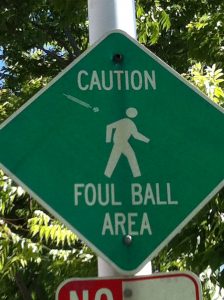
Sunday, 10:58pm
Reno, NV
“Who’s on first?” (Abbott & Costello.)
Howdy…
Have you read Gary Bencivenga’s latest “bullet” newsletter? It’s at www.bencivengabullets.com — and the story told there is so uplifting that Gary Halbert reproduced it in his newsletter (www.thegaryhalbertletter.com).
I’m a sap for good inspirational stories. It’s one of the hazards of being in touch with your emotional side, which is absolutely necessary if you want to write world-class copy — hell, I sometimes tear up watching sappy television commercials. Often, it’s the snarly, cynical guys who have the biggest soft spots.
Bencivenga’s story reminded me of something in my own past I’d long forgotten about.
This was in the early seventies, in my college town. A friend asked me to help him coach a kids baseball team — there were no parents available.
This was before the movie “The Bad News Bears” was made, and I believe it’s something that has happened multiple times (and is still happening) all across the country: One team in the league is created to house all the kids the other teams don’t want. The lousy players, the outcasts, the orphans of society.
And then, a coach is lured in, also from the outside. And then the team is taken for granted as a perpetual loser, but everyone can feel good about having “given the little bastards a chance“.
In this case, our team was a true menagerie of mutts. We had a couple of kids who didn’t speak English… several obese kids who couldn’t run to save their lives… a few emotional basket cases who would burst into tears for no reason (this was before the age of heavy medication)… and the only girl in the league.
Make no mistake — as coaches, we were mutts, too.
The other coaches were upstanding parents, still sporting their crewcuts from their glory days as star jocks. They took baseball very seriously.
And there we were, my friend Bob and I — two long-haired hippies in torn jeans and “Up The Establishment” tee shirts. We did, however, share a love of baseball. We’d both played organized hardball through our teens, and knew a bit about the game.
The first practice was a disaster.
Kids showed up with decrepit gloves that fell apart with the first catch, there was rampant crying and hurt feelings, and my feeble Spanish wasn’t cutting it with the ESL kids. And no one was paying the coaches much attention.
It was chaos. Being a nice guy did not have much effect.
So, in frustration, I just decided to screw the nice guy attitude…
… and told the team to take a lap as punishment.
They looked at me in disbelief, and I had to chase them toward the far fences. They got back, huffing and gasping, and I made it clear that we were gonna do laps every time they got out of hand. And I stuck to it, too.
Was I being cruel?
Nope. I was treating them as ballplayers. And, to my astonishment, they loved it. I don’t think too many adults in their lives had set down boundaries before. These kids were, for the most part, treated as losers, and acted like it.
Out of nothing more than frustration, I had accidentally given them a taste of respect — by demanding that they stop acting like losers.
Even when, once the league started, we lost every single game in the first half of the season except the last one. At first, we got blown out…
… and then we started getting closer, even scaring some teams. The fat kids stopped wheezing when they ran, and it turned out the girl had a wicked bat at the plate. And once the emotional kids realized we were going to just ignore their crying jags, they stopped doing them. Mostly. There would be a few tears and sniffles every game, but no one tannted them or paid them extra attention.
It just became no big deal.
And I’m not making this up: The last game of the first half was against the arrogant first-place team… and we beat them by a run.
Our joy was compounded by the humiliation of the jocks in the other dugout.
It got better, too. In the second half of the season, we won most of our games. It wasn’t enough to win the league, as Hollywood would have done it, but the real victory was the change in the kids.
I never once saw any of their parents in the stands for a game, and I wasn’t about to adopt any of them. I had a lot going on in my life, and this was a one-time volunteer thing, a couple of evenings each week. Come summer, I was going to be gone.
To give you an idea of how different a time that was — and how indifferent Bob and I were to social conventions — here is how we celebrated the final game: We brought an ice chest into the dugout. Soda pop for the kids, and beer for the two coaches. And long, heart-felt hugs and slaps on the butt after the last out.
And no tears.
I never saw any of those kids again. I have no idea what became of any of them.
But I remember their faces. I wasn’t such a sap back then, and I wasn’t proud of my effect on them, or even really aware of it. It was a job to be done, once I agreed to do it. A challenge, to get this motley crew of losers in some sort of shape. And, if we could, to beat the sneers off the faces of the other teams.
As a coincidence, I worked as a crisis-intervention counselor for institutionalized teenagers as my next job. It was the only gig my fancy degree in psychology could get me during the Carter recession.
And, just to put things in perspective, I learned fast that the majority of kids who get dealt a bad hand in life don’t get happy endings.
You can try as hard as you can to change some things, and wind up only with a broken heart and dashed illusions. The burn-out rate of adults working with state-owned kids is near to one hundred percent.
Still, you take the little flashes of magic when you can.
Those kids on the baseball team got to experience a few weeks of discipline and the attention of two adults who — no matter how scroungy and off-beat we looked — refused to let them wallow in victimhood. Who knows what curves life threw them after that. Maybe we had no lasting impact whatsoever.
Or maybe we did. When I reflect on the people who were forces of change in my life, it’s clear that major turning points often come as small moments. A casual comment, a fleeting extra lesson, a simple nudge of acceptance.
As adults, as business owners and marketers, we tend to believe we have to be tough as nails all the time. There’s even more pressure to be a rock when you lead others.
And it’s easy to forget just how fragile we are, as humans. We can be brought to our knees by microscopic bugs, rendered destitute by events we never see, decked by the uncontrollable forces of nature, fortune and destiny. And you’re vulnerable no matter how rich, or strong, or important you are.
But it works the other way, too. The power of a short phone call, an unexpected letter, or a visit “just for the hell of it” with someone who’s down can change history.
I’ve advised every writer I’ve worked with to strive to “be that one thing your prospect reads today that gets his blood moving”.
And that’s not bad advice for your personal life, either. Be that one person who is willing to share a moment — no matter how brief — with someone who needs your attention. Unlike business transactions, there may not be instant results.
You may never know what your actions accomplish. And, in truth, you shouldn’t care. You don’t reach out to others because there are rewards. You reach out because you can.
Have a great holiday.
Stay frosty,
John Carlton










